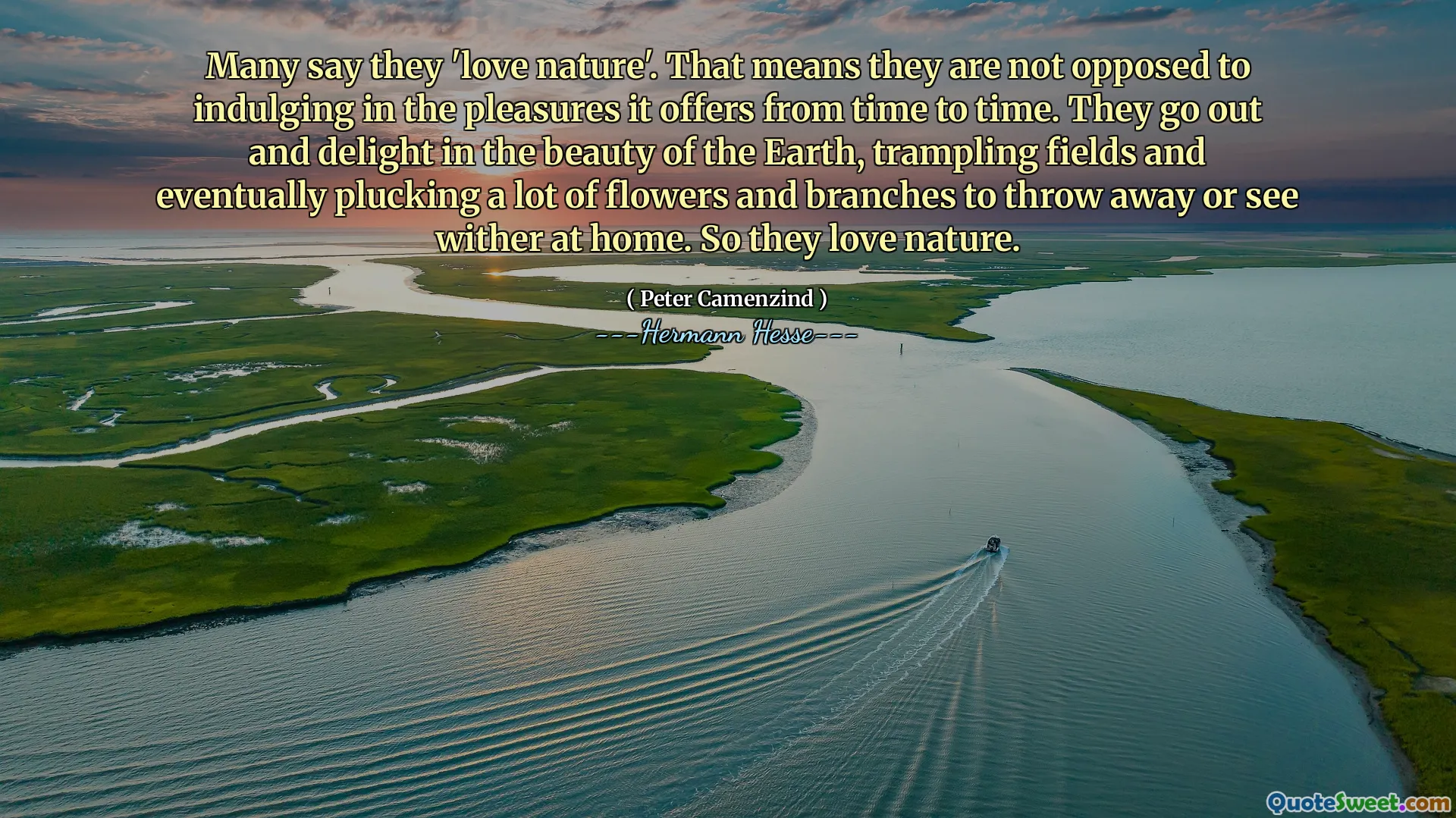
Many say they 'love nature'. That means they are not opposed to indulging in the pleasures it offers from time to time. They go out and delight in the beauty of the Earth, trampling fields and eventually plucking a lot of flowers and branches to throw away or see wither at home. So they love nature.
This quote by Hermann Hesse offers a profound reflection on the true nature of our relationship with the environment. It critiques the superficial way many people claim to love nature, highlighting a common paradox: subjecting the natural world to casual exploitation while believing that simply appreciating its beauty is a genuine form of love. Humans often romanticize nature's splendor—walking through meadows, admiring the flowers, marveling at the landscape—yet their actions sometimes reveal a lack of respect and responsibility. The imagery of trampling fields and plucking flowers underscores the inconsistency between admiration and care. Genuine love for nature should encompass preservation, respect, and mindful interaction rather than fleeting admiration or casual plunder. The quote invites us to consider our true motives—is appreciation enough without action? Are we truly connected to nature if our engagement is superficial and disconnected from the impact we leave behind? As environmental concerns grow more pressing, this reflection becomes increasingly relevant. It challenges us to think about conservation, sustainable practices, and the importance of nurturing a deeper, more responsible relationship with the Earth. Recognizing the difference between superficial enjoyment and genuine respect is essential if we aspire to preserve the planet not just aesthetically but ethically and ecologically. Understanding that loving nature involves more than admiration—it requires active care—can inspire meaningful change and foster a more conscientious coexistence.







